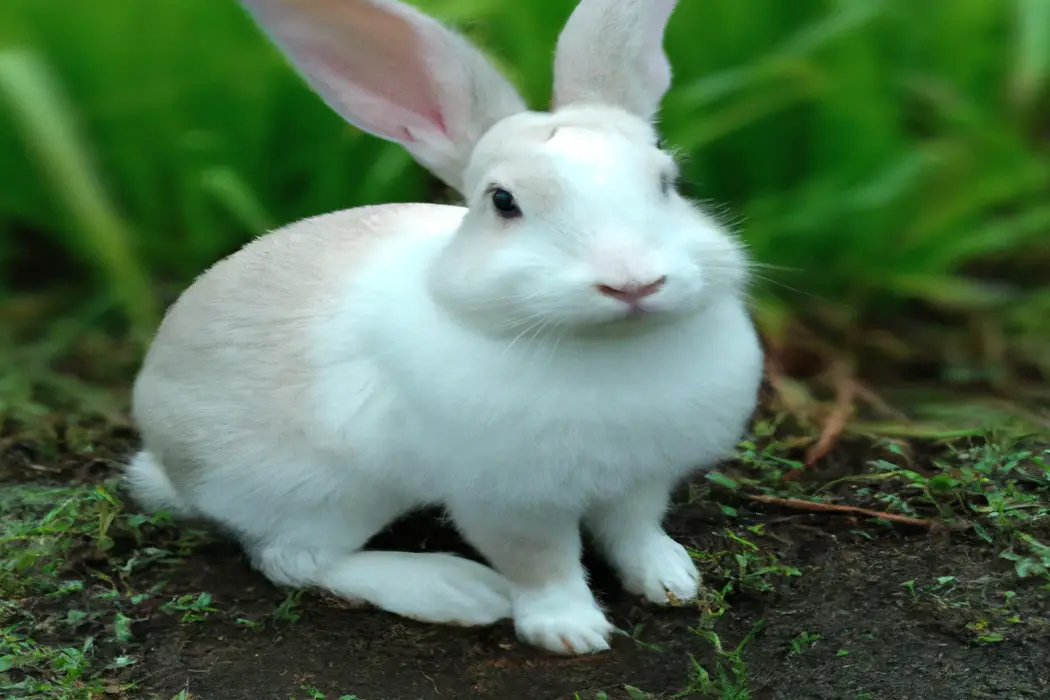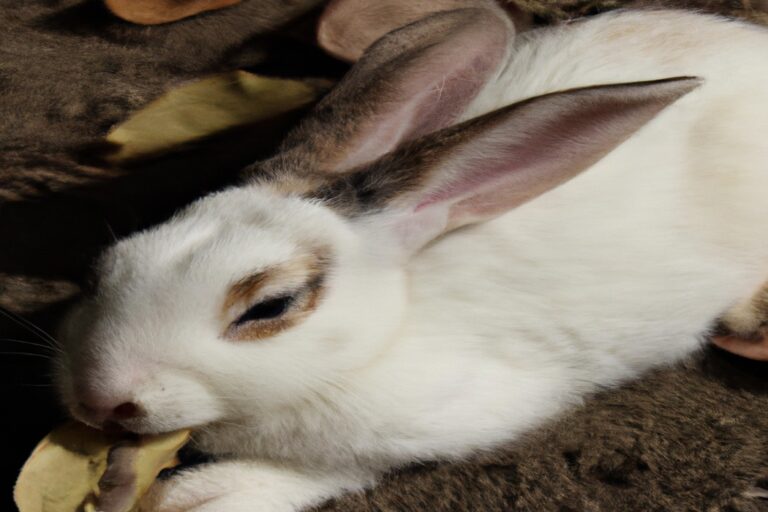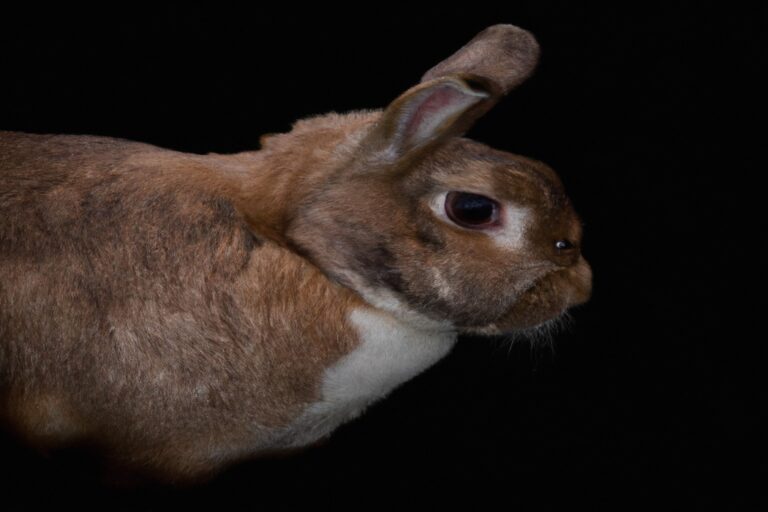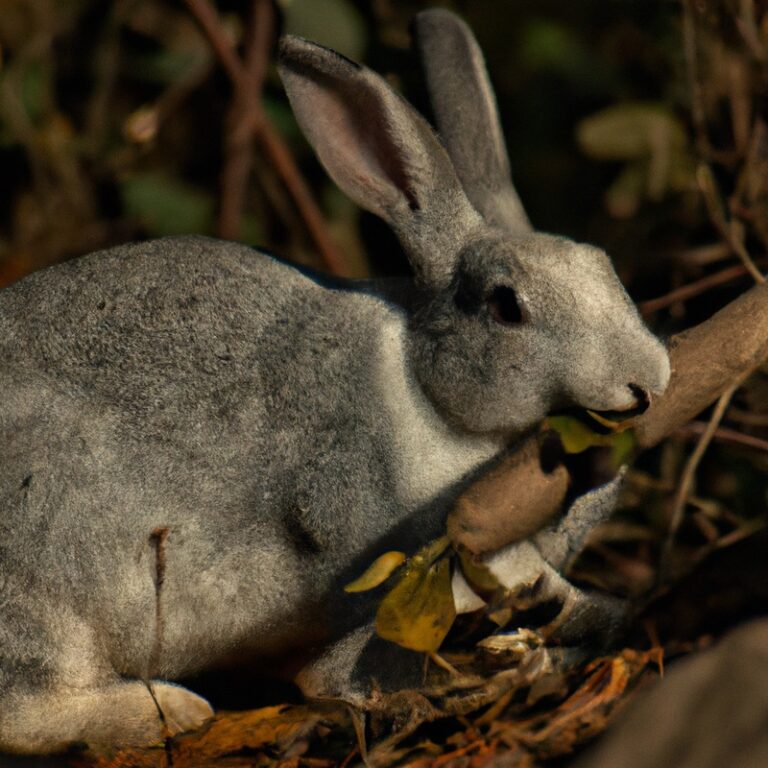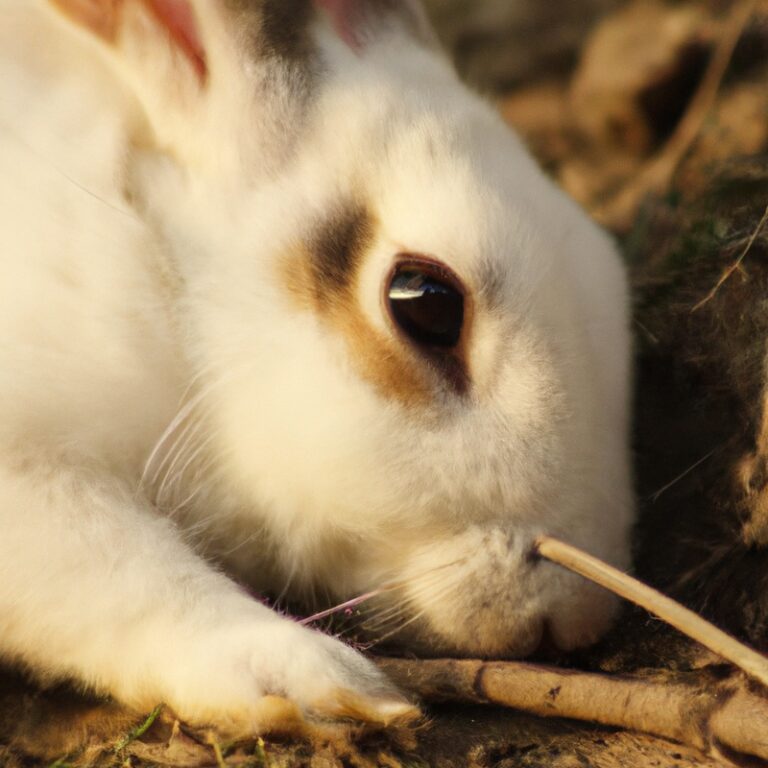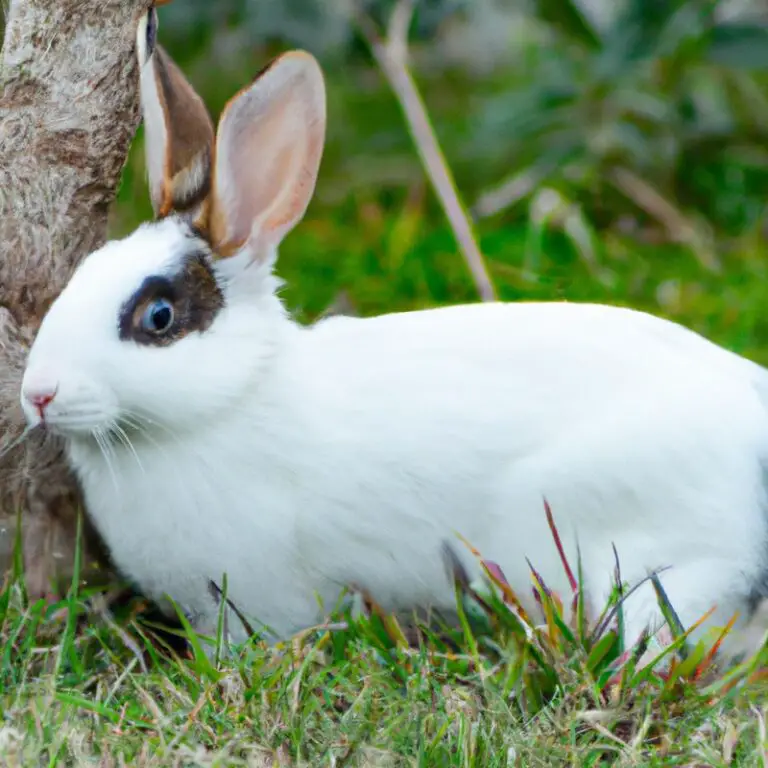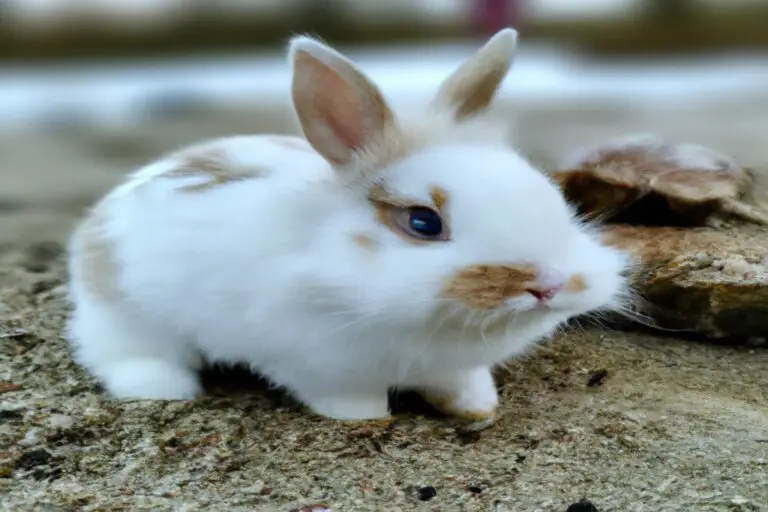How Much Is a Flemish Giant Rabbit Cost – Worth It?
Key Takeaways:
- Flemish Giant rabbits can range in price from $50 to $200.
- Factors such as age, color, and breeder reputation can influence the cost of a Flemish Giant.
- It’s essential to consider the long-term expenses of owning a Flemish Giant, including food, housing, and veterinary care.
- Adoption or rescue options might be available for those looking to save on costs while providing a loving home for a Flemish Giant rabbit.
Are you a fan of fluffy and adorable rabbits? Have you ever come across the magnificent Flemish Giant Rabbit?
These gentle creatures are known for their large size and friendly temperament, making them perfect companions for rabbit enthusiasts.
But here’s the big question: how much does a Flemish Giant Rabbit actually cost? In this article, we’ll explore the factors that determine their price, the average cost you can expect, where to buy them, and additional expenses to consider.
Plus, we’ll answer some frequently asked questions about these amazing creatures.
So, if you’re curious about bringing a Floppy-eared friend into your home, keep reading!
| Item | Price Range |
| Flemish Giant Rabbit (pet quality) | $50-$100 |
| Flemish Giant Rabbit (show/breeding quality) | $100-$300 |
| Flemish Giant Rabbit (with pedigree) | $200-$500 |
| Flemish Giant Rabbit (rare color or special markings) | $500-$1500 |
Factors that Determine the Cost of a Flemish Giant Rabbit
Factors that Determine the Cost of a Flemish Giant Rabbit: Breeder Reputation and Location, Age and Sex of the Rabbit, Pedigree and Show Quality, Color and Coat Type.
Breeder Reputation and Location
The reputation of the breeder and their location are important factors that determine the cost of a Flemish Giant rabbit. A reputable breeder who has a track record of producing healthy and well-socialized rabbits will often charge more for their rabbits.
Additionally, the location of the breeder can also impact the price, as breeders in areas with a higher cost of living may charge more for their rabbits.
It’s worth considering these factors when looking to purchase a Flemish Giant rabbit.
Age and Sex of the Rabbit
The age and sex of a rabbit are important factors that determine its cost.
- Age: Generally, younger rabbits are more expensive than older ones. This is because younger rabbits have a longer lifespan ahead of them and are considered more trainable and adaptable.
- Sex: Female rabbits, also known as does, are usually more expensive than males, called bucks. This is because female rabbits can reproduce and have the potential to produce litters of baby rabbits, which can be sold. If you’re not interested in breeding, a neutered or spayed rabbit can be a more affordable option.
Pedigree and Show Quality
Pedigree and Show Quality are two important factors that determine the cost of a Flemish Giant rabbit.
- Pedigree: A rabbit with a strong pedigree comes from a long line of well-bred and documented rabbits. This ensures that the rabbit has desirable traits and conformations. The more prestigious the lineage, the higher the cost.
- Show Quality: Show quality rabbits meet specific breed standards and have a higher chance of winning in rabbit shows. These rabbits have ideal size, shape, and coat color. Show quality rabbits are often more expensive due to their superior quality and potential for breeding and showing.
Color and Coat Type
Color and coat type are important factors that determine the cost of a Flemish Giant rabbit. The color of the rabbit can vary and may include black, blue, fawn, or white.
Coat types can be either short or long-haired.
Purebred rabbits with rare or desirable colors and coat types are typically priced higher. Additionally, show-quality rabbits with ideal color and coat characteristics may also be more expensive.
The specific color and coat type preferences may vary among breeders and buyers, so it’s essential to consider these factors when determining the cost of a Flemish Giant rabbit.
Average Cost of a Flemish Giant Rabbit
The average cost of a Flemish Giant rabbit can range from [PRICE RANGE]. Possible prices could be influenced by variables such as breed, age, color, and location.
Pet Quality Rabbits
Pet quality rabbits are rabbits that are not suitable for breeding or show purposes due to certain flaws or characteristics.
These flaws can include incorrect coloring, too small or too big size, or incorrect body type.
However, pet quality rabbits can still make wonderful companions as pets.
They are usually less expensive than breeding or show quality rabbits, making them a more affordable option for those looking for a furry friend.
Just because they are not suitable for breeding or shows doesn’t mean they can’t bring joy and happiness to your life.
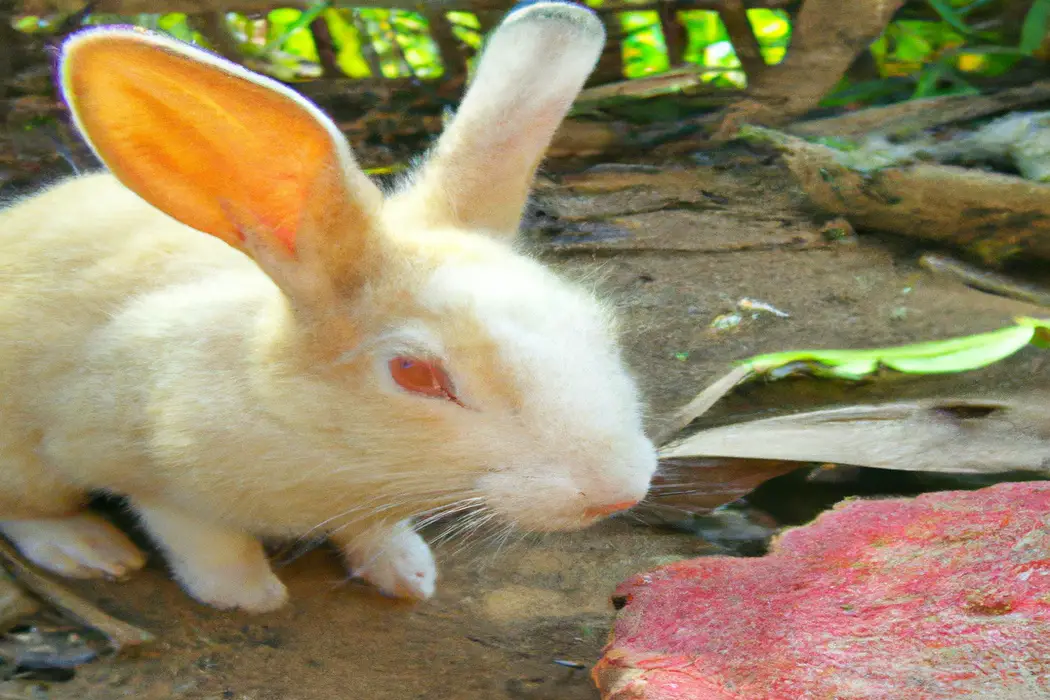
Show Quality Rabbits
Show Quality Rabbits are highly sought after by experienced rabbit breeders and participants in rabbit showing competitions. These rabbits possess specific qualities that make them stand out, such as a well-balanced body structure, a uniform and dense coat, and the right color and markings according to breed standards.
Show Quality Rabbits are typically more expensive than pet quality rabbits, as they come from bloodlines with a proven track record of producing champions.
Breeding and raising show quality rabbits can be a rewarding endeavor for those passionate about rabbit breeding and showing.
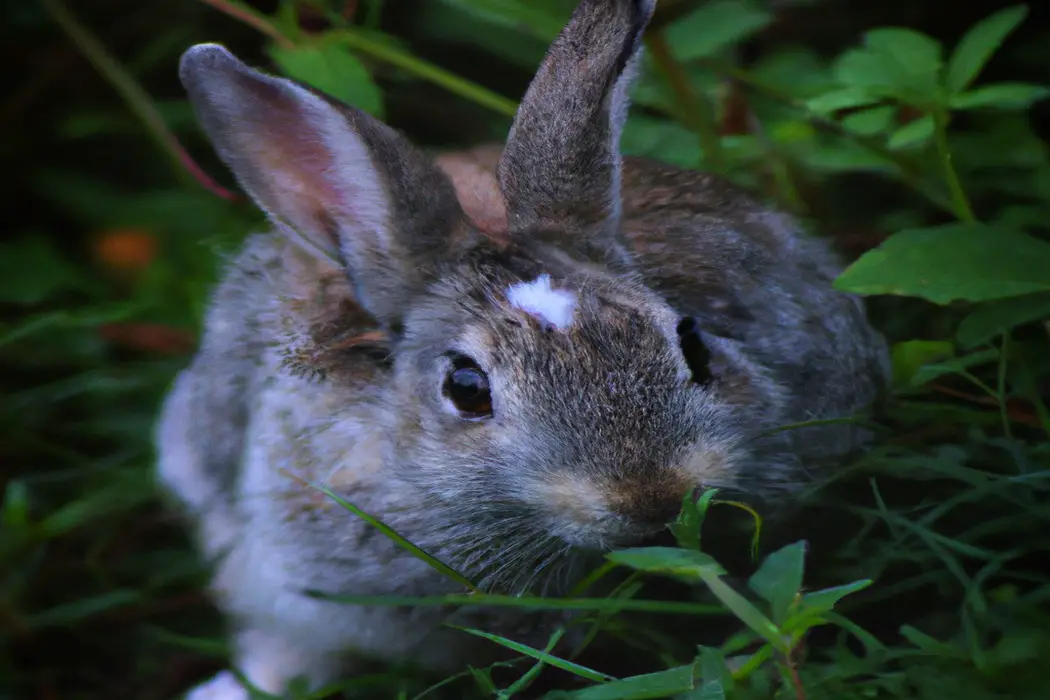
Breeding Stock Rabbits
Breeding stock rabbits are the foundation of any rabbit breeding program. These rabbits are carefully selected for their desirable traits and are used for producing offspring with those same traits.
When choosing breeding stock, it’s important to look for rabbits that are healthy, have good temperament, and meet the breed standards.
It’s also crucial to choose rabbits that have a history of producing high-quality offspring. Regular health check-ups and proper nutrition are important for maintaining the health and fertility of breeding stock rabbits.
Where to Buy a Flemish Giant Rabbit
You can find Flemish Giant rabbits from local breeders, online marketplaces, and rabbit shows and expos.
Local Breeders
If you’re looking for a Flemish Giant rabbit and want to support local breeders, here are a few tips. You can start by checking online platforms like social media groups, forums, and classified ads specific to your area.
Local pet stores may also have connections with breeders or be able to point you in the right direction.
Additionally, attending rabbit shows or contacting local rabbit clubs can help you connect with reputable breeders in your area. Don’t forget to ask about their breeding practices, veterinary care, and any certifications they may have.
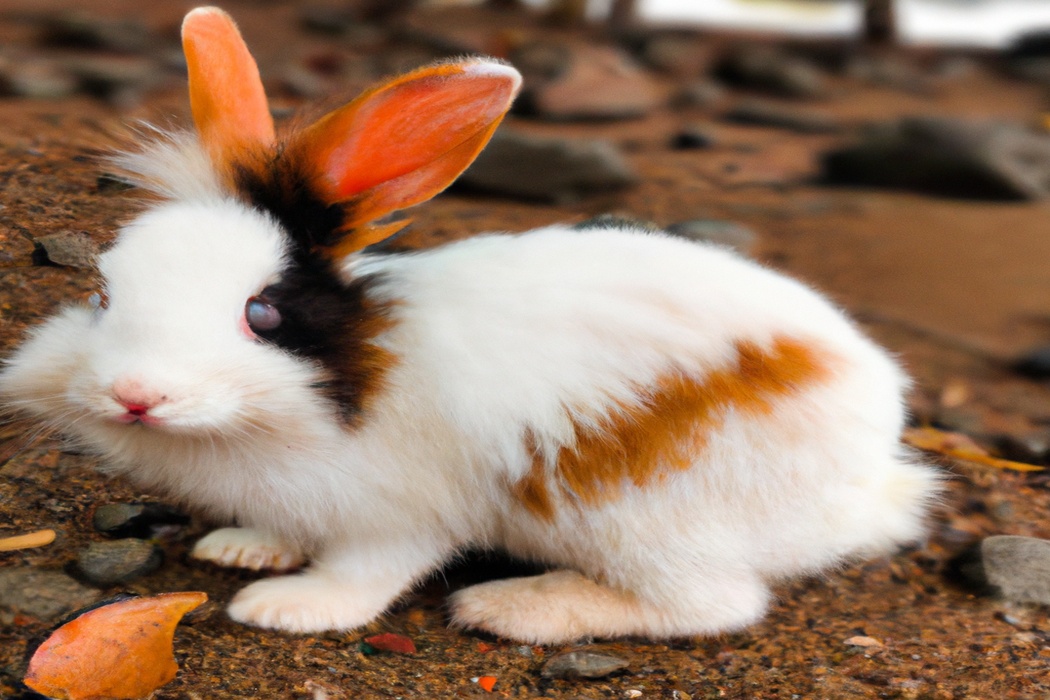
Online Marketplaces
Online marketplaces are a convenient and accessible option for purchasing a Flemish Giant rabbit. These platforms provide a wide range of sellers and options to choose from.
Some popular online marketplaces to consider include websites like Amazon, eBay, and Etsy.
On these platforms, you can browse through different listings, compare prices, and read reviews from other buyers. Additionally, online marketplaces often offer secure payment options and have policies in place to protect buyers.
Just make sure to do your research and choose a reputable seller to ensure a smooth buying experience.
Rabbit Shows and Expos
Rabbit shows and expos are a great way to learn more about Flemish Giant rabbits and connect with other rabbit enthusiasts.
These events often feature competitions, educational seminars, and the opportunity to meet breeders and experts in the rabbit world.
Attending a rabbit show or expo is a fantastic way to see different breeds of rabbits, including Flemish Giants, up close, and get a sense of the breed’s characteristics and standards.
Plus, you may even get the chance to purchase a Flemish Giant rabbit from a reputable breeder at the event.
Additional Costs to Consider
There are several additional costs to consider when purchasing a Flemish Giant rabbit, including housing and enclosures, supplies and accessories, and veterinary care and insurance.
Housing and Enclosures
To properly house your Flemish Giant rabbit, you’ll need a spacious enclosure that allows for plenty of room to hop, stretch, and play. A minimum enclosure size for one rabbit is 4 feet by 8 feet, with a height of at least 2 feet.
Consider using a large dog crate or a custom-built enclosure with strong wire mesh walls.
Provide a soft bed of straw or hay for cozy lounging, and make sure the enclosure is secure to prevent escapes. Regularly clean the enclosure to maintain a clean and healthy living space for your rabbit.
Supplies and Accessories
Supplies and Accessories for your Flemish Giant Rabbit:
- Rabbit hutch or cage: Provide a spacious and comfortable living space for your rabbit.
- Bedding: Choose a suitable bedding material to keep the hutch clean and cozy.
- Food and water bowls: Invest in bowls that are sturdy and easy to clean.
- Hay feeders: Provide a hay feeder to ensure a constant supply of fresh hay for your rabbit’s dental health.
- Toys and chews: Keep your rabbit entertained and prevent boredom with chew toys and tunnels.
- Grooming tools: Regularly groom your rabbit with a brush and nail clippers to maintain their coat and hygiene.
- Litter box: Train your rabbit to use a litter box for easy cleanup.
- Exercise pen or play area: Allow your rabbit to stretch their legs in a safe and secure area outside the hutch.
- Travel carrier: If you plan on traveling with your rabbit, a carrier is essential for safe transportation.
Veterinary Care and Insurance
Veterinary care and insurance are important considerations when owning a Flemish Giant rabbit. Regular check-ups with a rabbit-savvy veterinarian can help ensure your bunny’s health and catch any issues early on.
From vaccinations to teeth trims, veterinary care can vary in cost.
It’s a good idea to budget for routine visits, as well as unexpected illnesses or emergencies. Additionally, pet insurance can provide financial support for veterinary expenses, giving you peace of mind.
Research insurance options to find one that fits your needs and budget.
FAQ (Frequently Asked Questions)
How much do Flemish Giant rabbits weigh?
Flemish Giant rabbits can weigh anywhere from 13 to 22 pounds on average.
Some can even reach weights of up to 30 pounds or more! These rabbits are known for their impressive size and are often referred to as the “gentle giants” of the rabbit world.
Their large size makes them a popular choice for those looking for a unique and striking pet.
However, it’s important to note that their size also means they require more space and care compared to smaller rabbit breeds.
What is the lifespan of a Flemish Giant rabbit?
The lifespan of a Flemish Giant rabbit is typically around 5 to 10 years. It’s important to note that individual rabbits may live shorter or longer lives depending on factors such as genetics, diet, and overall care.
Providing a proper diet, regular veterinary check-ups, and a clean and safe living environment can help ensure a longer and healthier life for your Flemish Giant rabbit.
Are Flemish Giant rabbits good pets?
Flemish Giant rabbits can make great pets if you have the space and dedication to care for them.
These gentle giants are known for their friendly and calm temperament, making them a good choice for families with children.
However, they do require a lot of space to roam and explore, so a large enclosure or a secure outdoor area is essential.
Additionally, their size means they require more food and grooming than smaller rabbit breeds.
Taking the time to properly socialize and handle your Flemish Giant will help ensure a well-behaved and happy pet.
Do Flemish Giant rabbits require any special care?
Flemish Giant rabbits do require some special care due to their large size and specific needs. Here are a few key aspects to consider:
- Adequate space: These rabbits need plenty of room to move around comfortably. Ensure they have a spacious and secure enclosure with ample room to stretch out.
- Diet: Proper nutrition is essential for their well-being. Provide a balanced diet consisting of fresh hay, vegetables, and high-quality rabbit pellets.
- Grooming: Their dense fur requires regular grooming to prevent matting and keep it in good condition. Brush them weekly and trim their nails as needed.
- Exercise: Flemish Giants are active rabbits and need daily exercise to stay healthy. They should have access to a safe and supervised play area outside their enclosure.
- Socialization: These rabbits thrive on companionship. Consider getting them a compatible rabbit friend for social interaction and mental stimulation.
By addressing these specific care needs, you can ensure that your Flemish Giant rabbit lives a happy and healthy life.
Can Flemish Giant rabbits be litter trained?
Yes, Flemish Giant rabbits can be litter trained.
These gentle giants are known to be intelligent and can easily learn to use a litter box.
With patience, consistency, and positive reinforcement, you can teach your Flemish Giant rabbit to use a litter box just like any other rabbit.
Provide a large litter box with rabbit-safe litter, place some of their droppings in the box to encourage them, and praise them when they use it correctly.
With time and consistency, litter training your Flemish Giant rabbit can be successful.
Final Verdict
The cost of a Flemish Giant rabbit can vary depending on several factors.
Breeder reputation and location, age and sex of the rabbit, pedigree and show quality, as well as color and coat type, all play a role in determining the price.
On average, pet quality rabbits are more affordable, while show quality and breeding stock rabbits tend to be more expensive.
When buying a Flemish Giant rabbit, you have options such as local breeders, online marketplaces, and rabbit shows and expos.
It’s important to factor in additional costs like housing, supplies, and veterinary care.
Overall, Flemish Giant rabbits can make wonderful pets, but they do require special care and attention.
With their gentle nature and potential for litter training, they can become great companions.
So, if you’re considering adding a Flemish Giant rabbit to your family, consider your budget, research your options, and provide them with a loving and suitable environment.

